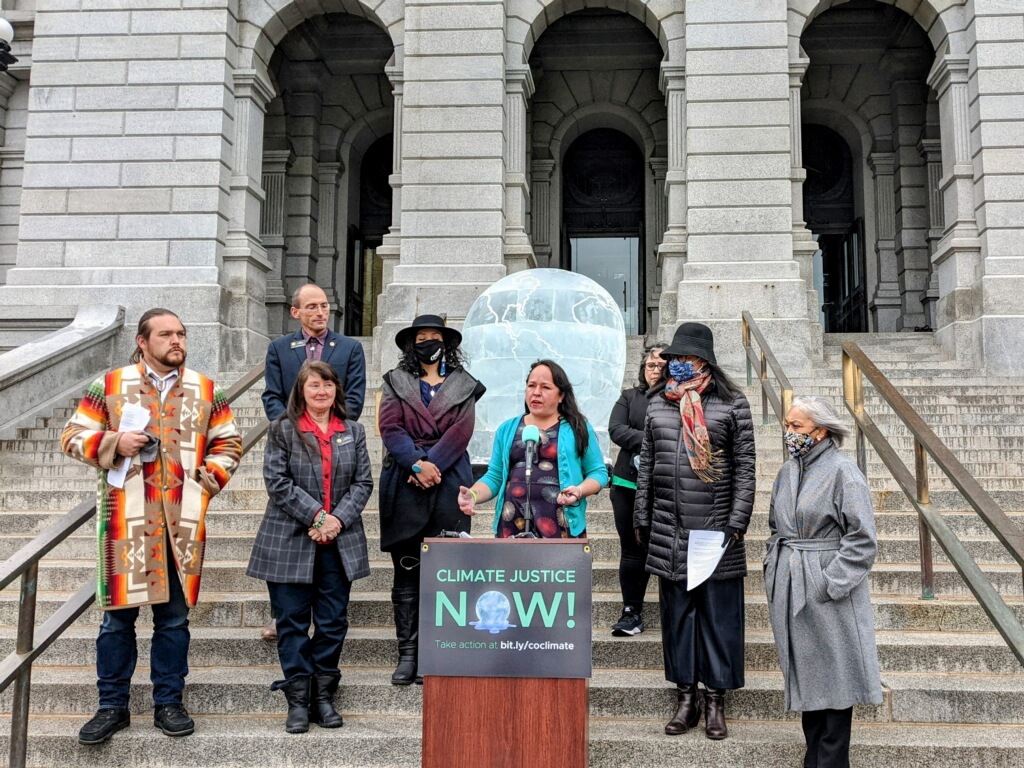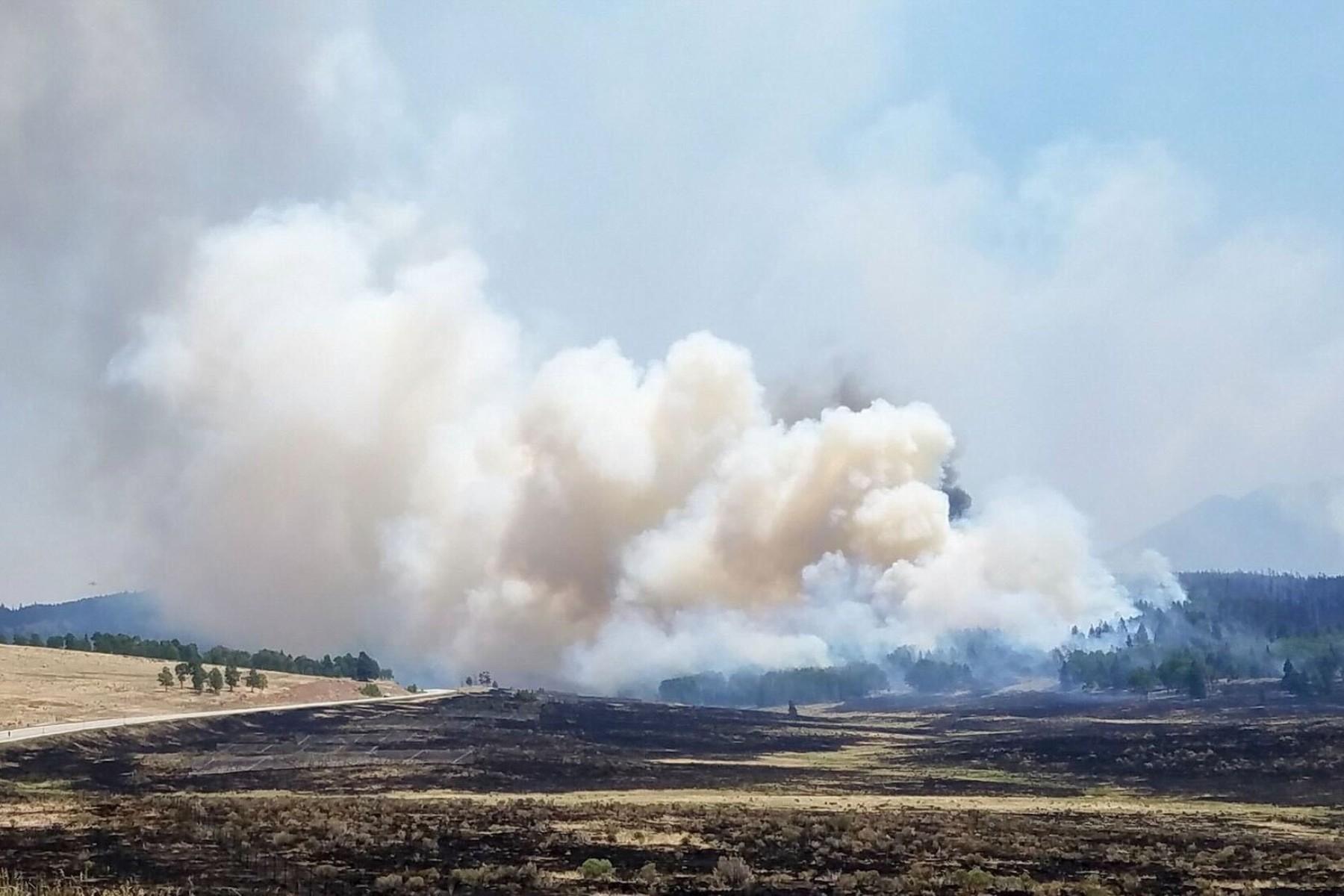
Almost since winning Colorado’s top office in 2018, Democratic Gov. Jared Polis has frustrated environmental advocates and progressive lawmakers who want to see Colorado take aggressive action to address climate change.
Now the conflict has boiled over at the state capitol.
A landmark climate bill passed a Senate committee Tuesday, but hours of testimony revealed a wide split among Colorado Democrats over the state’s climate strategy. Polis has sought a business-friendly path that's heavy on incentives and voluntary agreements. Democratic State Sen. Faith Winter, a bill sponsor representing Westminster, praised those efforts but said the state needs enforceable regulations as a backstop.
“What we’re doing is relying on a lot of good will, a lot of press releases, that are not legally enforceable,” Winter said.
Winter said the latest legislation, SB21-200, is necessary to hold Colorado to its climate action goals — a greenhouse gas reduction plan Polis signed in 2019. Those targets commit the state to reduce its contribution to climate change 26 percent by 2025, 50 percent by 2030 and 90 percent by 2050. Each target is measured against Colorado’s 2005 emission levels.
The crux of the debate is how to pull the private sector in line with those goals. Earlier this year, the Polis administration released a “roadmap” that claimed existing policies and corporate commitments put the state on track to get halfway to the 2030 benchmark. It outlined other policies to close the remaining gap, including plans to encourage telework and electric car adoption.
But environmental groups and some Democrats worry those efforts could fall short without clear regulations. Meanwhile, electric utilities and labor unions balked at the legislation, saying it attempts to move the goalposts after the governor tried to enact earlier climate bills.
Erin Overturf, a clean energy organizer for Western Resource Advocates, said the legislation was proposed to enshrine pieces of the governor’s climate roadmap into law. To clarify the path toward the statewide climate goals, the document quantifies the necessary emission reduction from different parts of Colorado’s economy, like transportation and electricity generation.
SB21-200 also tasks Colorado’s Air Quality Control Commission to adopt rules to ensure those reductions by March 1, 2022.
“These regulators establish and enforce pollution limits to protect our health and our environment. Climate pollution is not different,” Overturf told the committee.
The sector-specific targets are the central reason the governor’s office opposes the legislation. In a letter obtained by CPR News, Colorado Energy Office Director Will Toor told legislators the bill runs against the administration’s “whole-of-government approach,” which aims to reduce emissions with a range of rulemaking efforts, investments and public-private partnerships.
“Achieving our climate goals requires not only regulations, but market transformation,” Toor wrote in the letter.
In his testimony before the committee Tuesday, Toor said the governor’s office worries the bill could interfere with five current rulemaking efforts before the air commission, including plans to reduce emissions from transportation and oil and gas production. Toor warned the committee would only have a few months to regroup before writing far broader rules to reduce emissions.
Toor also defended an earlier statement from the administration, which referred to the sector-specific goals as “hard caps.” Environmental advocates have disputed that characterization, saying the bill gives state air regulators the flexibility to adjust emission limits if one sector manages to outpace the benchmarks. For example, regulators could allow the electricity generators to emit more if the oil and gas sector outpaces expectations.
Nevertheless, Toor said those decisions shouldn’t belong to the air commission alone. Other state commissions should also play a role.
The point earned a fierce rebuke from Democratic State Sen. Kerry Donovan. She told Toor the administration used similar arguments to dodge meaningful climate enforcement for two years.
"Let's say we're going to figure it out and do it. Or let's stop saying we're going to do it,” Donovan said during the committee hearing. “People aren’t going to be satisfied with a press release and a messaging document.”
After more than six hours of testimony, the committee amended the bill to ensure it would not accelerate the closure of Comanche 3, a coal power plant in Pueblo that Xcel Energy plans to retire in 2040. Another amendment attempted to ensure power companies would not have to reduce emissions every year so long as they meet long-term benchmarks.
Winter, the bill’s sponsor, said lawmakers would consider additional changes.
“These are our first amendments. They won’t be our last,” Winter said.
The final version passed the Senate Transportation and Energy Committee in a 4-3 party-line vote with Democrats in favor. While the Governor’s Office has said it cannot support the bill in its current form, there’s been no discussion of a veto — yet.









